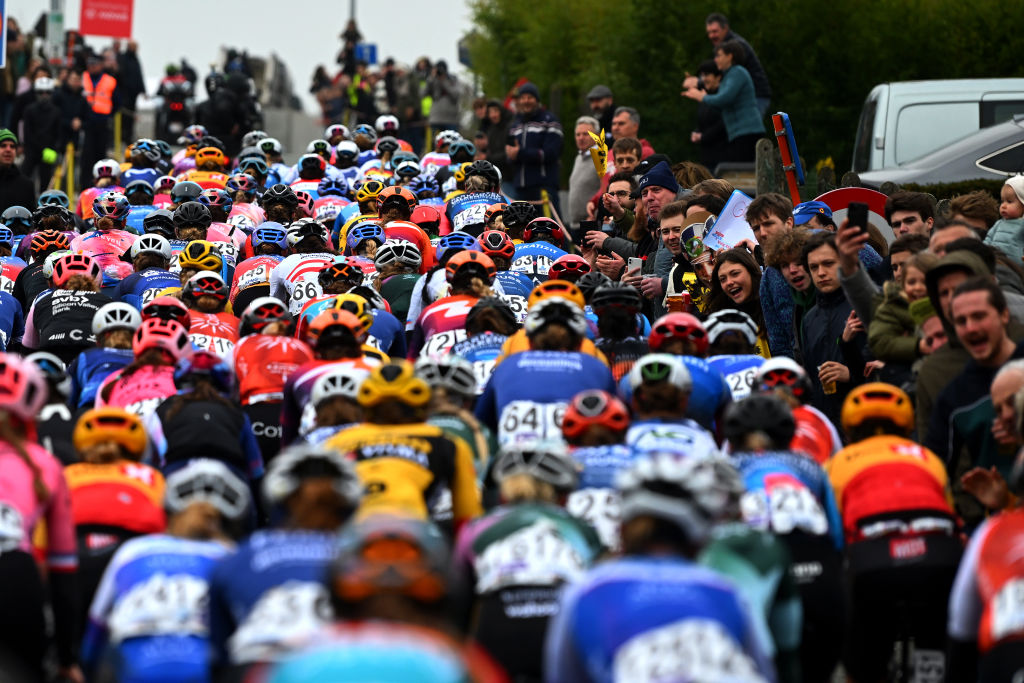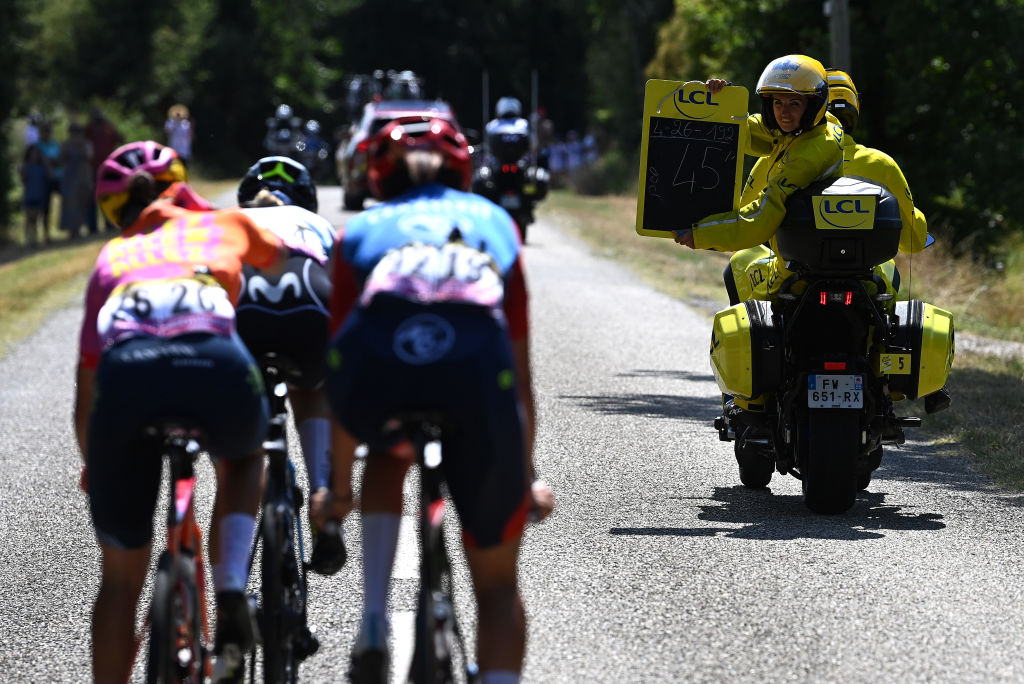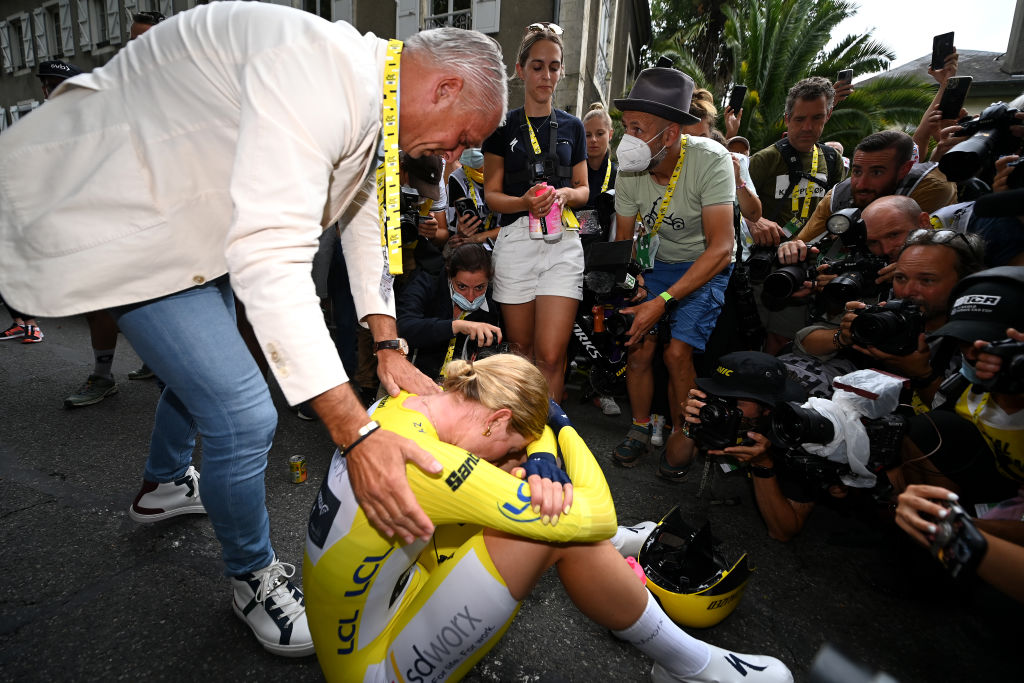Salaries, safety, live TV - The key concerns among the women's professional peloton
'Financial reasons continue to be the number one reason most female cyclists consider leaving the sport earlier than planned' says The Cyclists' Alliance in annual survey results

The Cyclists' Alliance (TCA) has released the results of its annual rider survey which has revealed the top three key areas of concern among women's professional cycling - salaries, safety and live coverage.
The sixth edition of the survey, conducted in June 2023, received 140 unique athlete responses, according to TCA. The survey asked 40 questions of female professional and elite cyclists which addressed several key topics, including, employment and income, education, team environments and professional support.
The association noted that the results of the survey represent riders from thirty-one countries who compete in six disciplines. In addition, the responses to the survey represents at least four hundred and twenty seasons of racing experience.
Salaries was the top concern among those who responded to the survey who are not contracted for Women's WorldTeams. Currently, only teams among the top-tier of women's cycling are obliged to pay a minimum salary to its riders.
The UCI introduced minimum salaries for Women's WorldTeams in 2020, and those increased to €32,102 (employed) / €52,647 (self-employed) in 2023. The salary structure now includes a neo-pro minimum salary of €26,849 (employed) / €44,032 (self-employed).
There are currently 59 Continental teams that are not obliged to pay riders a minimum salary, though some of them do. Among the second-tier teams, riders who responded to the survey indicated that they "struggle to make ends meet".
- Two in five riders do not get paid by their team at all
- One in five riders gets paid less than €5,000 gross per year
- One in five riders gets paid between €10,000 and €20,000
- Only around 15% of respondents receive a salary which meets or exceeds the mandated minimum salary for an employed person of €32,102
Those who responded to the survey indicated that 'financial reasons' continued to be the number one reason most women consider leaving the sport earlier than planned.
Get The Leadout Newsletter
The latest race content, interviews, features, reviews and expert buying guides, direct to your inbox!
This has meant that nearly one-third of survey respondents work a second job while performing in their contracted roles as professional cyclists, while less than half can rely on cycling as their only paid job. One-third of survey respondents are also studying while competing.
The survey also revealed that a quarter of respondents repay their team for expenses including obligatory UCI medical screening tests, flights and accommodation for racing, and bicycle repair and maintenance. In addition, for those survey respondents in teams which are affiliated with men’s teams, only 36% have access to the same resources and 21% have no access at all.
The first part of the survey results were released on the eve of the Tour de France Femmes avec Zwift where seven of the 22 teams were Continental, and therefore not obliged to pay their riders a guaranteed minimum salary. TCA estimated, based on its survey findings, that approximately 20% of the peloton at the Tour de France Femmes was not earning a liveable salary.
TCA's annual survey enables the association to obtain data and track changes in professional cycling. This data is used to shine a light on key issues and problems, which it aims to solve for the riders. It has stated that the full report on the 2023 annual survey will be released in September 2023.
Safety

Safety was revealed to be the second biggest concern among those who responded to the TCA's annual survey.
In addition, the survey found that certain riders were not operating in a safe working environment, citing poor management of concussions or insufficient levels of professionalism from staff.
There have been several examples this year where the peloton and riders have been put in unsafe situations while racing. In March, the three-day Tour Féminin des Pyrénées was called off after two stages over safety issues.
The opening stage was marred by a spate of dangerous incidents, including oncoming traffic on the race route and parked cars blocking roads elsewhere.
On the second stage, the peloton staged a protest, with repeat neutralisations that reduced stage 2 to a hill climb up Hautacam, where Marta Cavalli (FDJ-Suez) took victory and the leader's jersey.
The final stage of the race did not take place after multiple teams pulled out and decided not to start. The UCI then took measures to cancel the event to maintain the safety of those competing.
Safety issues were raised again at the Tour de France Femmes a photographer’s motorbike touched a rider and passed riders closely during stage 4 into Rodez. The incident happened on a narrow road when two motorbikes tried to pass the breakaway.
The UCI then announced that SD Worx team manager Danny Stam was excluded from the Tour de France ahead of stage 6. In this incident, the UCI cited the dangerous nature of Stam's driving when overtaking other cars and riders during stage 5 while bringing Demi Vollering back to the field following a flat tyre. Vollering received a 20-second time penalty.
Live broadcasting

The survey respondents also indicated that live broadcasting of events is the third key concern among the women's peloton.
The sport has taken significant steps in recent years to bring more visibility to women's racing, particularly after the UCI made 45 minutes of live broadcasting a requirement to be part of the Women's WorldTour in 2020.
The Giro d'Italia was downgraded to the 2.Pro Series in 2021 for not providing required live television the previous year, but returned to the Women’s WorldTour in 2022.
Other races have also struggled to meet the live broadcasting requirements with RideLondon Classique temporarily stripped of its top-tier licence for offering limited TV last year. The event returned this year with a full package of live broadcasting.
Some races have also offered live broadcasting, but have missed key moments, such as the Paris-Roubaix Femmes where coverage that began after the first cobble sector, while other events have had spotty coverage during the key sections of stages and races.
Live broadcasting has been one of the biggest drivers of visibility to women's racing in the last three seasons, and fans of the sport now anticipate and expect live broadcasting at all of the sports top events, and also the lower level events on the Pro Series and .1 race.
The Tour de France Femmes is an example of how much an event, teams, riders and fans can gain from quality live broadcasting and organisation. Last year, in its first edition of the renewed women's Tour, it attracted an average live audience of 2.9 million and in total and the race achieved a cumulative live audience of 23.2 million people.
Professionalisation

TCA released the second part of the sixth annual survey on August 15 and this pointed to the need for increased professionalisation of women's cycling.
The survey revealed that 29% of respondents do not feel that their team was run in a professional manner. In addition, only 45% of riders who answered the survey confirmed that their team provided them with opportunities to improve their race performance.
Since the launch of the Women's WorldTour in 2016, steps have been taken to add a two-tier team system, minimum salaries for the top-tier, maternity leave, live television broadcasting for top-tier events, and new safeguarding structures, all aimed at increasing the professionalisation of the sport.
Earlier in August, the UCI announced some new decisions in favour of the professionalisation of women's cycling, and commitments to a fairer and safer sport.
The two major steps included the integration of stakeholders of women's professional road cycling into the Professional Cycling Council (PCC), which will be, in part, responsible for the preparation of the ever-growing calendars.
At the recent UCI World Championships, the elite women's race medallists opened up about mental stress in cycling with Cecilie Uttrup Ludwig and Demi Vollering emphasising the need for balance with a busy calendar.
It also includes the approval of the creation of a second division of women's professional teams - ProTeams. The introduction of this division, positioned between the existing Women's WorldTeams (1st division) and Women's Continental Teams (to become 3rd division), was initially scheduled for the 2026 season but moved forward to 2025.
TCA stated in the second part of its survey that it welcomed the two commitments made by the UCI to further professionalise women’s cycling.
"Professionalism in the sport is aided not only by salaries and contracts but also by improving standards in all aspects of the sport - from working conditions, staff qualifications and the daily team environment, to the equipment for performing the job and the organisation of the racing calendar," the association stated.
The sport governing body also announced two new steps taken in its Cycling Integrity programme launched in 2022, with the approval of two documents, entitled "UCI Safeguarding Policy" and "Safeguarding: UCI Toolkit for Cycling Stakeholders ".

Kirsten Frattini is the Deputy Editor of Cyclingnews, overseeing the global racing content plan.
Kirsten has a background in Kinesiology and Health Science. She has been involved in cycling from the community and grassroots level to professional cycling's biggest races, reporting on the WorldTour, Spring Classics, Tours de France, World Championships and Olympic Games.
She began her sports journalism career with Cyclingnews as a North American Correspondent in 2006. In 2018, Kirsten became Women's Editor – overseeing the content strategy, race coverage and growth of women's professional cycling – before becoming Deputy Editor in 2023.